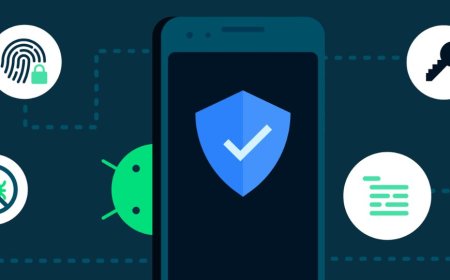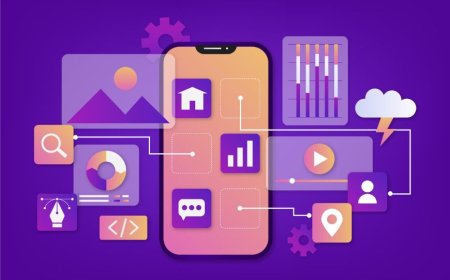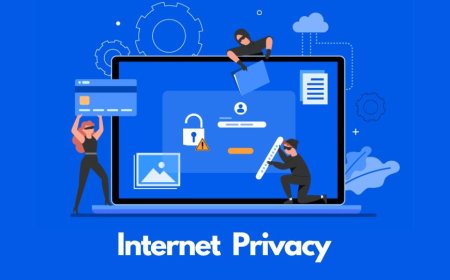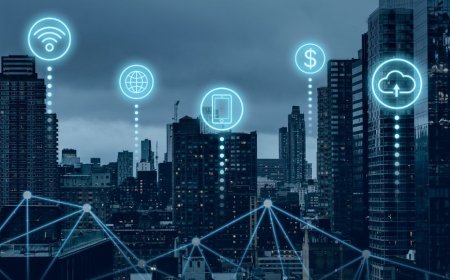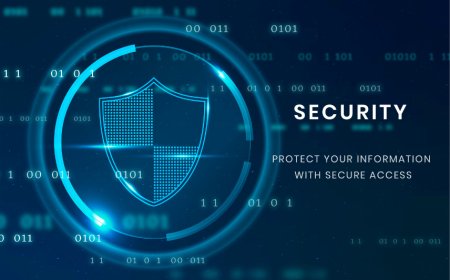10 Facts About Internet That'll Keep You Up at Night
Get ready to uncover 10 jaw-dropping facts about the internet in our latest blog! From cybercrime to misinformation, learn about the hidden sides of the web.
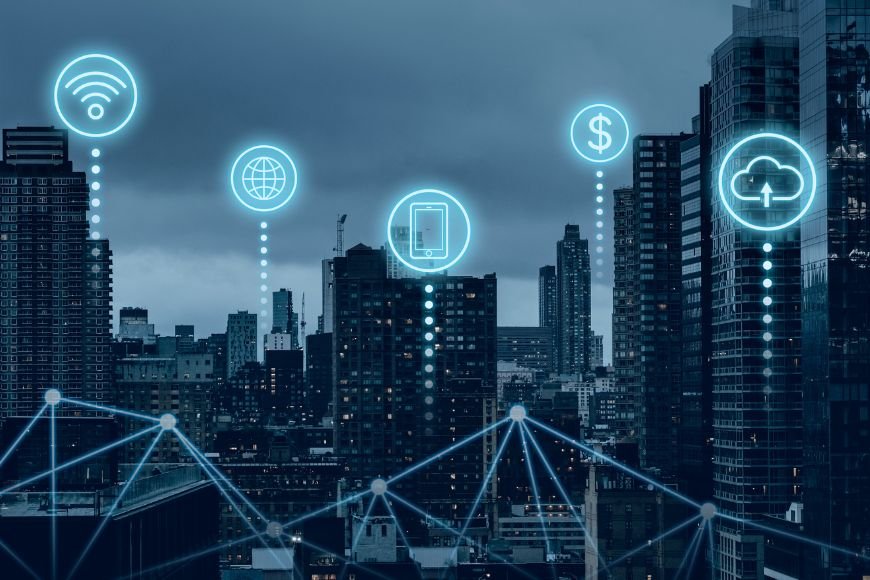
Table of contents
-
Introduction
-
The internet is bigger than you think
-
The internet is a hotbed for cybercrime
-
The internet is overwhelming us with information
-
The internet is shaped by algorithms
-
The internet is leaving a permanent mark on us
-
The internet is enabling a new form of deception
-
The internet is addictive
-
The internet shows echo chamber effect
-
The internet is spreading disinformation
-
The internet is harming the environment
-
Conclusion
Introduction
In the ever-expanding digital realm, the internet has become an integral part of our daily lives, shaping how we connect, consume information, and perceive the world around us. However, beneath the surface of our online interactions lie unsettling truths that often go unnoticed. In this blog, we embark on a journey through "10 Facts About the Internet That'll Keep You Up at Night," shedding light on the darker facets of our digital landscape. From the clandestine realms of the Dark Web to the ecological toll of our digital excess, each revelation is a compelling reminder that the internet's impact extends far beyond our screens. Brace yourself for a deep dive into the complexities of the online world, where awareness is the first step toward fostering a healthier and more conscious relationship with the internet.
1. The internet is bigger than you think
The internet is not just what you see on your browser or your social media apps. There is a hidden part of the internet that is not accessible by conventional means. This is called the dark web, and it is estimated to be 400 to 550 times larger than the surface web. The dark web is a network of websites that use encryption and anonymity tools to hide their identity and content from the authorities and the public. The dark web is often used for illegal activities such as drug trafficking, hacking, terrorism, child pornography, and more.
2. The internet is a hotbed for cybercrime
The internet has ushered in a new era of crime that poses challenges in detection and prevention. Cybercrime, defined as any illicit activity involving a computer, network, or device, encompasses a spectrum of offenses, including identity theft, phishing, ransomware, malware, and denial-of-service attacks. As per Cybersecurity Ventures, the global cost of cybercrime is projected to reach $10.5 trillion annually by 2025, a substantial increase from $3 trillion in 2015. This growing menace impacts individuals, businesses, and governments, leading to financial losses, reputational harm, emotional distress, and even physical injury. Addressing these threats necessitates a heightened focus on network security and cybersecurity measures to safeguard against the diverse range of cybercrimes that can exploit vulnerabilities in our interconnected digital landscape.
3. The internet is overwhelming us with information
The internet has also given us access to a vast amount of information that we can consume anytime, anywhere. However, this also comes with a downside. We are exposed to more information than we can process, and this can lead to information overload. Information overload is the state of being overwhelmed by the amount or complexity of information that we encounter. Misinformation is false or inaccurate information that is intentionally or unintentionally spread, often through social media platforms, online forums, or messaging apps. Misinformation can have serious consequences for public health, democracy, and social cohesion, as it can erode trust, fuel polarization, and influence people's behavior and decisions. Misinformation can also create a web of disinformation, which is a coordinated and deliberate attempt to manipulate public opinion or obscure the truth, usually for political, ideological, or financial motives.
Information overload can have negative effects on our privacy and mental health. Individuals play a crucial role in combating disinformation and reducing its harmful effects. Individuals can adopt various strategies to identify and avoid spreading misinformation, such as checking the source, the date, and the evidence of the information they encounter, verifying the facts from multiple and credible sources, and reporting or flagging suspicious or misleading content.For example, information overload can make us more vulnerable to data breaches, phishing, and identity theft. It can also cause stress, anxiety, confusion, reduced attention span, and impaired decision making.
4. The internet is shaped by algorithms
The internet is not a neutral or objective platform. It is influenced by algorithms that determine what we see, what we click, and what we buy. Algorithms are sets of rules or instructions that computers follow to perform a task or solve a problem. Algorithms are used by search engines, social media platforms, e-commerce sites, and more to provide us with personalized and relevant content and services. However, algorithms are not flawless. They can have bias and manipulation issues that can affect our online experiences and behaviors. For example, algorithms can reflect the prejudices and preferences of their creators or their data sources. They can also be used to manipulate our emotions, opinions, and actions through targeted advertising, fake news, and propaganda.
5. The internet is leaving a permanent mark on us
The internet is also creating a digital record of our online actions and data. This is called our digital footprint, and it can include our browsing history, social media posts, online purchases, emails, messages, photos, videos, and more. Our digital footprint can have lasting consequences for our personal and professional lives. For example, our digital footprint can affect our online reputation, our privacy, our security, and our opportunities. It can also be used for surveillance and profiling by governments, corporations, and other entities that can monitor, collect, and analyze our online data.
6. The internet is enabling a new form of deception
The internet is also becoming a platform for a new type of technology that can create realistic but fake images, videos, and audio. This is called deepfake, and it is a combination of the words “deep learning” and “fake”. Deep learning is a branch of artificial intelligence that uses neural networks to learn from large amounts of data and generate new outputs. Deepfake technology, driven by artificial intelligence, fabricates realistic yet false images, videos, or audio, manipulating appearance, voice, or behavior through deep learning algorithms. While it finds applications in entertainment, education, and research, its misuse poses serious threats to society. Deepfakes can spread misinformation, manipulate public opinion, and jeopardize democratic processes, impacting individuals' rights and societal stability. Challenges in combating deepfakes include the potential for misinformation and manipulation, loss of trust in credible sources, and legal/ethical dilemmas concerning privacy and intellectual property. Addressing this issue requires collaboration among technology developers, media platforms, government agencies, and users. Strategies encompass fortifying detection methods, fostering education and awareness, and instituting clear regulations and accountability frameworks to ensure the responsible and ethical deployment of deepfake AI technology.
7. The internet is addictive
The internet is also a source of entertainment and pleasure for many people. However, some people may develop an unhealthy or excessive attachment to the internet that interferes with their normal functioning. This is called internet addiction, and it is a behavioral disorder that involves compulsive or excessive use of the internet. Internet addiction can have negative effects on our physical and mental health. For example, internet addiction can cause eye strain, headaches, neck pain, sleep problems, obesity, and more. It can also cause depression, anxiety, loneliness, isolation, low self-esteem, and impaired social skills.
8. The internet shows echo chamber effect
The echo chamber effect, a digital phenomenon prevalent on social media and online communities, where individuals are consistently exposed to information that aligns with their existing beliefs, fostering polarization and reducing critical thinking. This phenomenon poses a threat to democratic processes by deepening ideological divides. To mitigate these issues, several recommendations are crucial. Firstly, promoting media literacy empowers users to critically evaluate information and seek diverse perspectives actively. Secondly, advocating for algorithmic transparency in content curation on digital platforms is vital to counteract biases. Encouraging civil discourse, both online and offline, entails fostering respectful and open discussions while discouraging hate speech. Diversifying social circles by actively engaging with individuals holding different viewpoints promotes a broader understanding of issues. Lastly, incorporating educational initiatives, especially in schools, about the echo chamber effect raises awareness about the consequences of limited exposure to diverse perspectives. Addressing the echo chamber effect through these measures is pivotal for cultivating a digital society that values diversity of thought, fosters inclusivity, and supports meaningful dialogue.
9. The internet is spreading disinformation
The internet is also a medium for the dissemination of information, but not all information is true or accurate. There is a growing problem of disinformation on the internet, which is the deliberate creation and spread of false or misleading information that is intended to deceive or influence people. Disinformation can have various sources and purposes, such as political agendas, ideological beliefs, financial gains, or personal grudges. Disinformation can have harmful effects on our society and democracy, such as eroding trust, polarizing opinions, inciting violence, or undermining elections. We all have a role to play in combating disinformation, by verifying the sources, checking the facts, and reporting the falsehoods.
10. The internet is harming the environment
The internet is also a resource-intensive and energy-consuming system that has a significant impact on the environment. The internet relies on a vast network of data centers, servers, routers, cables, satellites, and devices that require electricity, cooling, and maintenance. The internet also generates a lot of electronic waste, such as discarded or obsolete devices, batteries, and components. According to a report by The Shift Project, the internet accounted for 3.7% of global greenhouse gas emissions in 2018, and this could rise to 8% by 2025. The internet also consumes 10% of the world’s electricity, and this could increase to 20% by 2030. We need to adopt more sustainable practices and policies to reduce the environmental impact of the internet, such as using renewable energy sources, improving energy efficiency, recycling electronic waste, and limiting our internet usage.
Conclusion
The internet is a powerful and amazing tool that has transformed our world and our lives. However, the internet also has a dark side that poses many challenges and risks for our society and environment. We need to be aware of these facts and act responsibly and ethically when we use the internet. We also need to support and demand more initiatives and regulations that can protect and improve the internet and its users. The internet is not a perfect or a permanent system. It is up to us to make it better and safer for ourselves and future generations.
What's Your Reaction?







